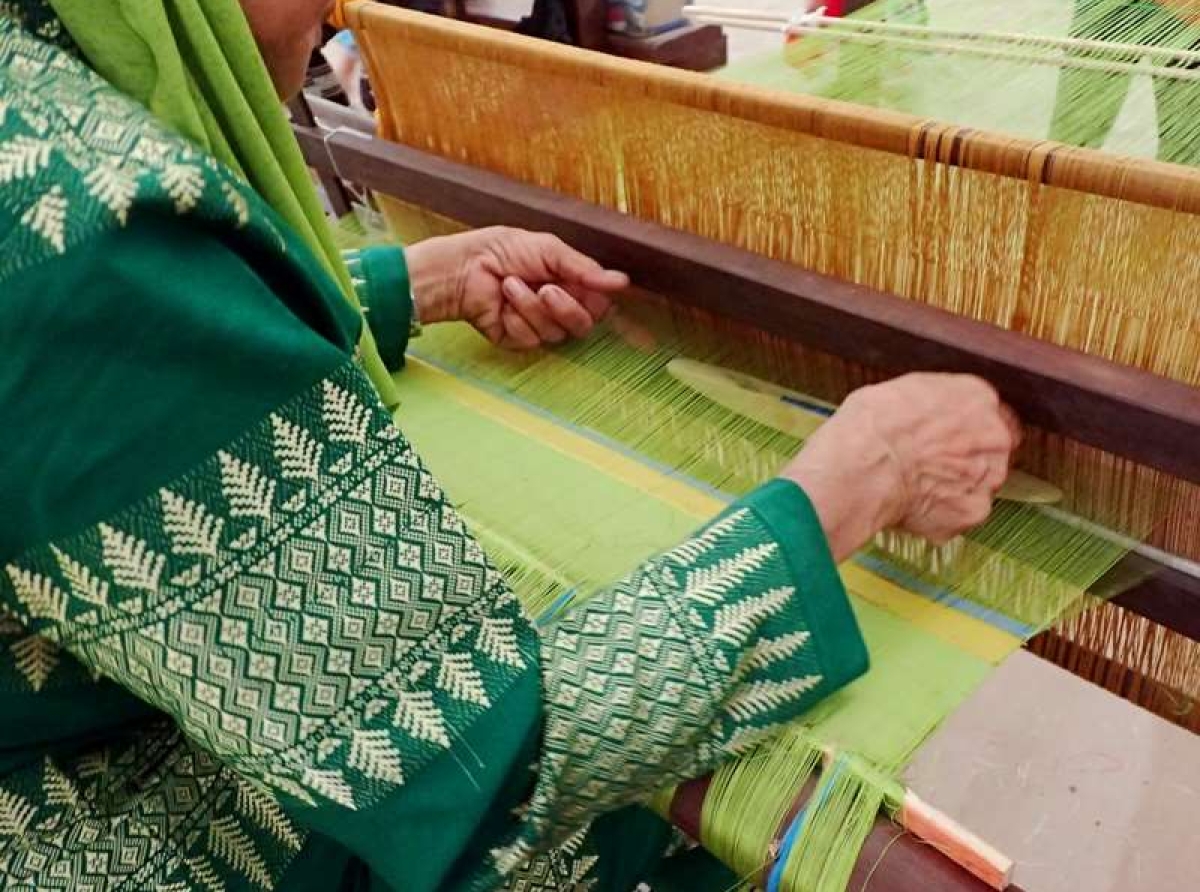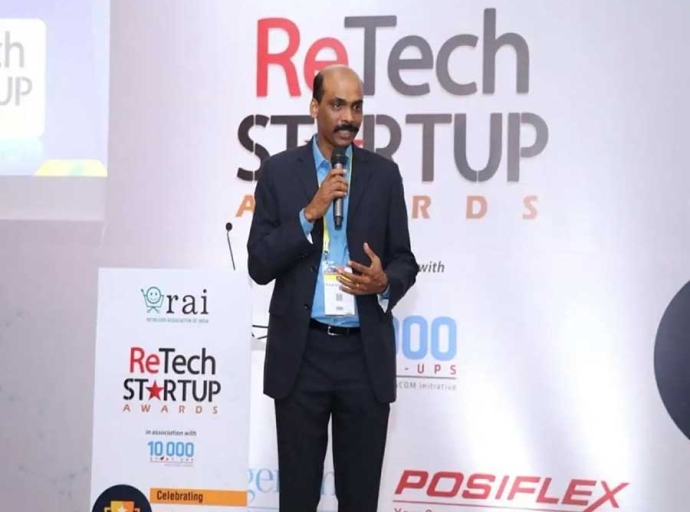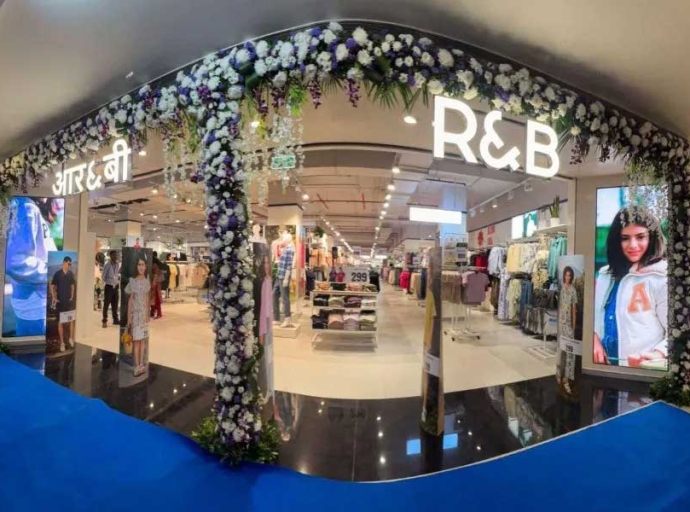Fashion Forward: Tech weaving new threads in India's apparel industry

Gone are the days of brick-and-mortar dominance in the Indian fashion scene. Leading retailers like Shoppers Stop for example are embracing this trend with initiatives like ‘Endless Aisles’ allowing customers to browse online inventory in physical stores and order for home delivery. Similarly, Lifestyle offers ‘Buy Online, Pickup In-Store’ and ‘Reserve Online, Try In-Store’ options, enhancing convenience and flexibility. Weaving technology into their operations helps them offer innovative experiences and disrupting the industry landscape.
Blurring the lines between online and offline
Omni channel initiatives have helped retailers increase sales. For example Shoppers Stops’ Endless Aisles service allows customers to order online products unavailable in-store for delivery or in-store pick-up increased customer convenience, reduced cart abandonment, and improved sales conversion. Shoppers Stop reports a 15 per cent rise in online orders fulfilled through ‘Endless Aisle’ Lifestyle's ‘Endless Checkout’ enables seamless online or offline payments across channels.
Bridging the gap between imagination and reality
Virtual Reality (VR) and Augmented Reality (AR) have helped in boosting experience. Trent Hypercity, a hypermarket chain, partnered tech a startup to offer an AR ‘virtual wardrobe’ experience, allowing customers to virtually try on clothes before purchasing. This improved customer engagement, reduced product returns, and personalized shopping experiences. Hypercity witnessed a 20 per cent increase in apparel sales with its AR virtual wardrobe. Trent's Westside chain partnered with tech company InfiAR to introduce virtual try-on for footwear, allowing customers to see how shoes look on their feet before purchase. Similarly, Reliance Retail, through its Ajio platform, incorporates AR features like ‘Virtual Try-On’ for shoes and accessories, enhancing customer engagement and reducing product returns.
Riding the Artificial Intelligence (AI) bandwagon
Reliance Retail's Azorto platform uses AI-powered chatbots to answer customer queries, recommend personalized outfits based on browsing history, and predict upcoming trends based on social media data. This enhanced customer service, personalized shopping experiences, and data-driven inventory management. Azorto reports a 20 per cent increase in customer satisfaction with AI-powered recommendations.
Personalization is key in today's competitive market, and AI is playing a pivotal role. Shoppers Stop's ‘MyStyle’ program leverages AI to understand customer preferences and recommend personalized outfits, while Lifestyle's ‘Style Advisor’ chatbot offers real-time styling advice based on individual needs. Similarly, Reliance Retail utilizes AI-powered demand forecasting to optimize inventory management and predict upcoming trends.
Robots revolutionize operations
Automation is transforming the back-end of fashion retail. Trent utilizes robots in its warehouses for faster order fulfilment and inventory management, while Shoppers Stop employs automated sorting systems to improve efficiency and accuracy. This not only reduces costs but also ensures timely deliveries, enhancing customer satisfaction. Myntra, along with Flipkart, utilizes robots in its warehouses for faster order fulfilment and inventory management. This resulted in reduced order processing time, improved accuracy, and cost savings. Myntra claims a 50 per cent reduction in fulfilment time with robots. Lifestyle also leverages automated sorting and packing systems in its fulfilment centres to expedite deliveries.
Sustainable practices
This promotes circular fashion, reduces environmental impact, and caters to eco-conscious consumers. Trent, through its brands Zara and Massimo Dutti, implements initiatives like garment collection for recycling and in-store water conservation measures. Shoppers Stop launched ‘Green Cart’, a platform for selling eco-friendly and sustainable fashion products. And reported a 10 per cent increase in sales through this platform. Similarly, Lifestyle has launched its Green Passport’ program, promoting sustainable products and educating customers about responsible choices. Reliance Retail's ‘Green Collection’ focuses on eco-friendly materials and processes.
Impact of technology on Indian retail
Rise of the phygital experience: Technology will bridge the gap between online and offline retail, creating a unified shopping journey.
Personalization and customization: AI and data analytics enable brands to offer highly personalized product recommendations and tailor experiences to individual preferences.
Greater operational efficiency: Automation and robotics will streamline processes, boost efficiency, and reduce costs.
Sustainable fashion revolution: Technology will play a crucial role in promoting eco-conscious practices and responsible consumption within the industry.
Indeed this is just the beginning of a fascinating chapter in Indian fashion. With technology as the guiding thread, the industry is weaving a new narrative – one that is personalized, sustainable, and accessible to all.
Latest Publications

































